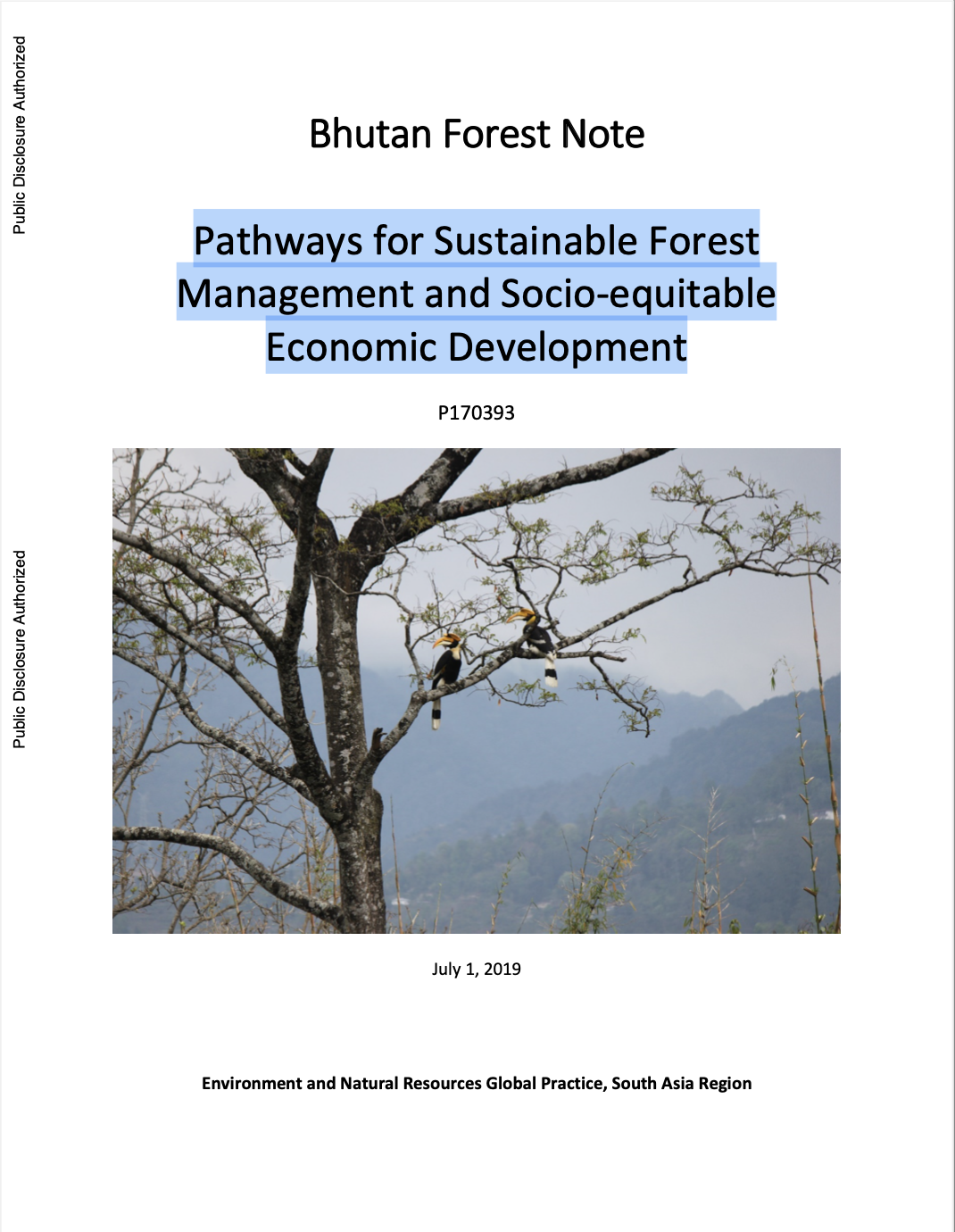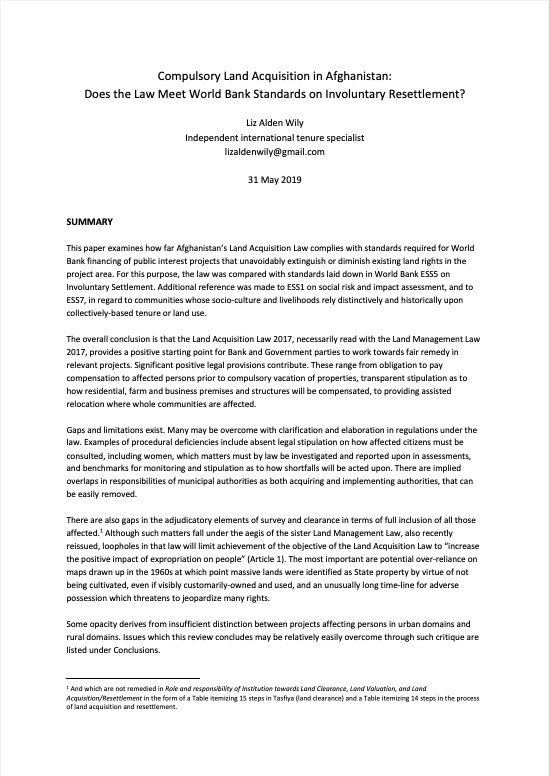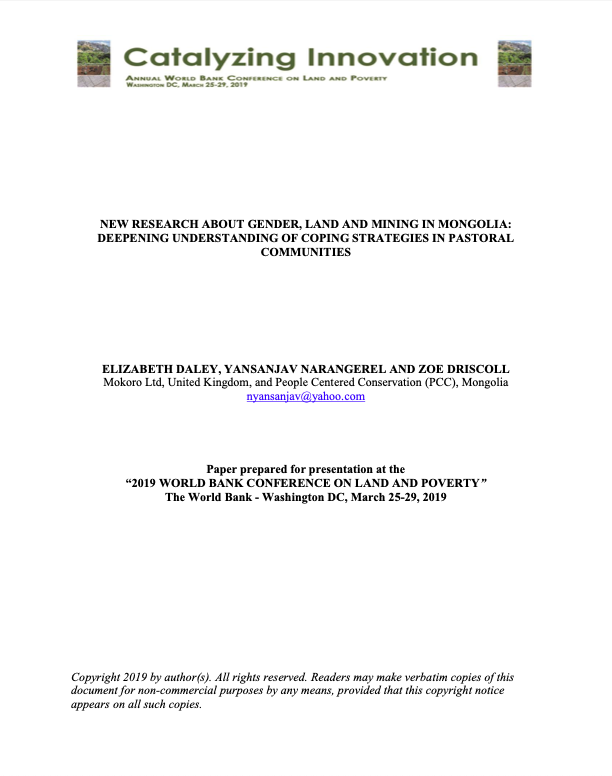The World Bank is a vital source of financial and technical assistance to developing countries around the world. We are not a bank in the ordinary sense but a unique partnership to reduce poverty and support development. The World Bank Group has two ambitious goals: End extreme poverty within a generation and boost shared prosperity.
- To end extreme poverty, the Bank's goal is to decrease the percentage of people living on less than $1.25 a day to no more than 3% by 2030.
- To promote shared prosperity, the goal is to promote income growth of the bottom 40% of the population in each country.
The World Bank Group comprises five institutions managed by their member countries.
The World Bank Group and Land: Working to protect the rights of existing land users and to help secure benefits for smallholder farmers
The World Bank (IBRD and IDA) interacts primarily with governments to increase agricultural productivity, strengthen land tenure policies and improve land governance. More than 90% of the World Bank’s agriculture portfolio focuses on the productivity and access to markets by small holder farmers. Ten percent of our projects focus on the governance of land tenure.
Similarly, investments by the International Finance Corporation (IFC), the World Bank Group’s private sector arm, including those in larger scale enterprises, overwhelmingly support smallholder farmers through improved access to finance, inputs and markets, and as direct suppliers. IFC invests in environmentally and socially sustainable private enterprises in all parts of the value chain (inputs such as irrigation and fertilizers, primary production, processing, transport and storage, traders, and risk management facilities including weather/crop insurance, warehouse financing, etc
For more information, visit the World Bank Group and land and food security (https://www.worldbank.org/en/topic/agriculture/brief/land-and-food-security1
Resources
Displaying 36 - 40 of 4907Bhutan Forest Note
The Bhutan Forest Note articulates opportunities for supporting Bhutan's sustainable development aspirations, including its constitutional commitment to maintain at least 60 percent of the country's land area under forest cover and to better respond or prepare for vulnerabilities such as climate change and natural disasters. The note presents a forward-looking business case for Bhutan to support an increase in forest utilization without jeopardizing the integrity of forest and non-forest ecosystems.
Compulsory Land Acquisition in Afghanistan: Does the Law Meet World Bank Standards on Involuntary Resettlement?
This paper examines how far Afghanistan’s Land Acquisition Law complies with standards required for World Bank financing of public interest projects that unavoidably extinguish or diminish existing land rights in the project area. For this purpose, the law was compared with standards laid down in World Bank ESS5 on Involuntary Settlement. Additional reference was made to ESS1 on social risk and impact assessment, and to ESS7, in regard to communities whose socio-culture and livelihoods rely distinctively and historically upon collectively-based tenure or land use.
New research about gender, land and mining in Mongolia: deepening understanding of coping strategies in pastoral communities
This paper shares findings from new research on gender and land in a pastoralist community in central- western Mongolia, with a complex structure of investment and operations in gold mining. The paper examines what has been learned from the research about people's coping strategies in the face of social and environmental change, specifically in the context of the development of mining since the transition from socialism and in a relatively isolated area.
21- Participation of Youth - Responsible Agricultural Investment (RAI): Knowledge into Action Notes series
This note is part of an Action Notes series and provides guidance for governments and companies on examples to follow to engage youth in participating in agriculture.
21- Participation of Youth - Responsible Agricultural Investment (RAI): Knowledge into Action Notes series
This note is part of an Action Notes series and provides guidance for governments and companies on examples to follow to engage youth in participating in agriculture.









